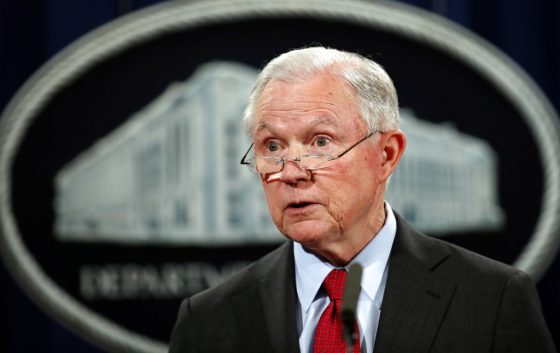
To the litany of challenges facing Colorado’s state-licensed marijuana business owners, add another one: The federal government could — though probably won’t — try to execute them.
This week, U.S. Attorney General Jeff Sessions sent a memo to the nation’s federal prosecutors urging them to seek the death penalty in cases involving large-scale drug traffickers. The memo points to an existing but little-known federal law that already allows for such a punishment.
Sessions’ memo talks largely about opioids, but federal law contains no such drug-specific limitation on prosecutors’ power. Trace the law’s meandering route through federal statutes and you’ll come to this conclusion: Anyone convicted of cultivating more than 60,000 marijuana plants or possessing more than 60,000 kilograms of a substance that contains marijuana could face death as a punishment.
So, did Sessions just greenlight using the death penalty against the nation’s largest marijuana business owners?
“I think it’s still very theoretical,” said Sam Kamin, a University of Denver law professor who, as harmonic luck would have it, specializes in marijuana law and in the death penalty. “I don’t think anyone thinks the federal government is going to seek the death penalty against a state-licensed business. But what it highlights is this enormous disconnect with federal and state law.”
Aaron Smith, the executive director of the National Cannabis Industry Association, similarly dismissed the possibility of executions for marijuana business moguls, even if it is technically possible under the law.
“I really think that’s just bluster,” he said.
Read the full article at DenverPost.com
Read the memo Sessions sent to U.S. Attorneys
Jeff Sessions Memo Capital Punishment in Drug Related Prosecutions (PDF)
Jeff Sessions Memo Capital Punishment in Drug Related Prosecutions (Text)
This story was first published on DenverPost.com




